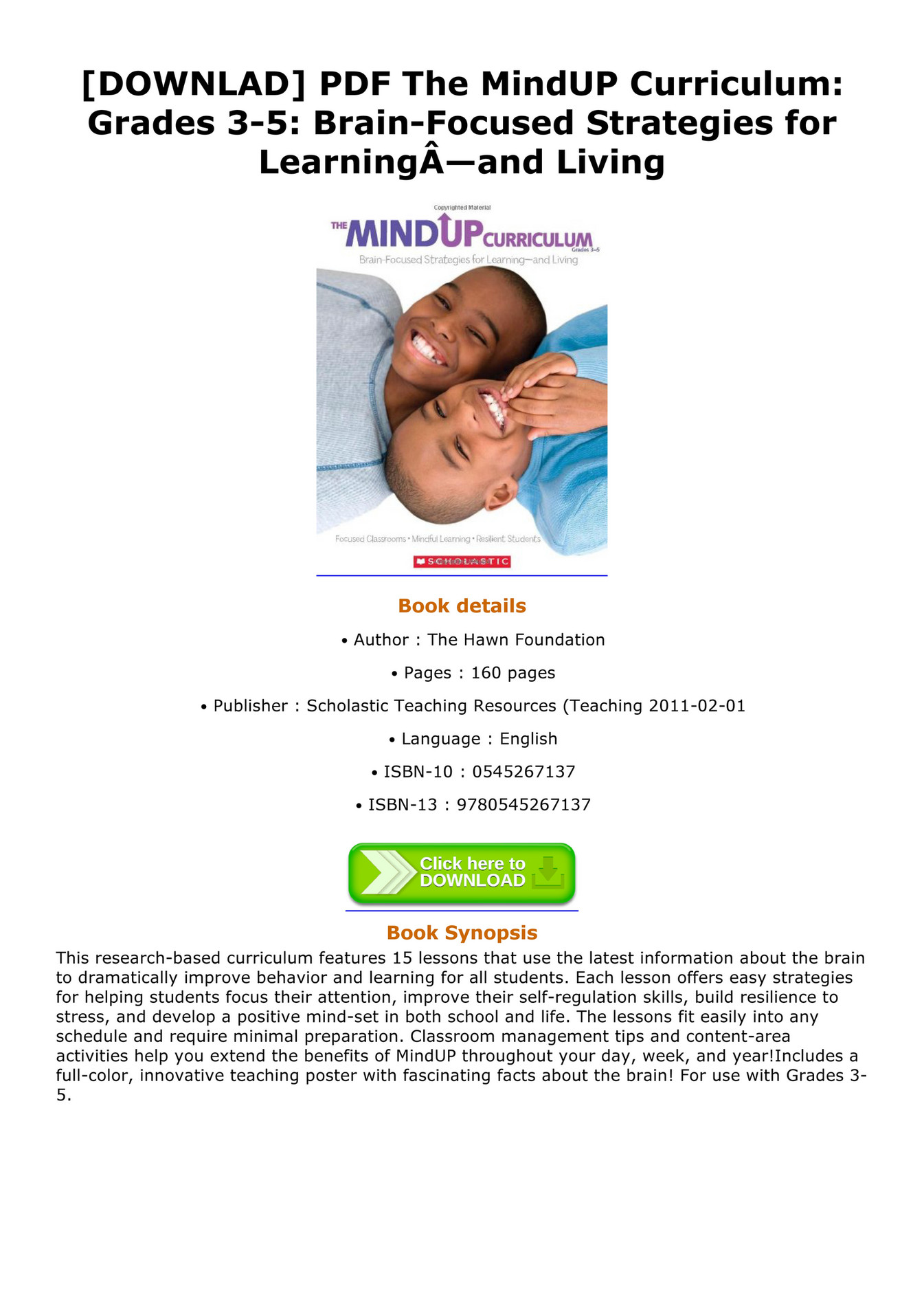

One of these instances is the guided “Brain Break” breathing exercise, which can be best practiced during any transition of activities in daily life as a way to enhance emotional and behavioral stability, and increase receptivity towards new information. MindUp™ offers an immersive exploratory experience together with daily core practices. Furthermore, the MindUp™ curriculum can be adapted by psychotherapists or counselors for their youth clients during therapy sessions, and trained parents for their own children at home. These lessons can be fully integrated into school culture, such as in between the usual academic lessons, after-school activities, and holiday camp.

It consists of 15 lessons for children and young people from preschool to grade 8, customized according to age group and developmental level. MindUp™ aims to encourage positive behavior, enhance learning and academic performance, and improve relationships with self and others in young people. MindUp™ applies a distinctive integration of these four pillars to build personal resilience in children and young people, which is a quality that is key to thriving in today’s world. It is grounded in four prominent components in the field of psychology and learning: mindfulness, neuroscience, positive psychology, and social and emotional learning. One of these programs is MindUp™, which was created by the Hawn Foundation in the United States. There are various programs and curricula to equip our next generation with resources to cope with challenges. These issues not only have a detrimental effect on young people’s general health and daily functioning, but also the quality of their relationships with people around them.

Ineffective coping with stress and anxiety can also later result in various types of psychological dysfunction, for example, over- or under- eating, substance abuse, or mood disorders. Additionally, lack of effective stress coping skills can contribute to poor self-control, which potentially results in various behavioral problems, such as physical disputes with others or compulsive shopping. As a result, these conditions deter them from focusing during learning, which negatively affects their academic performance. However, at the same time, a lot of these young people do not have adequate skills to cope with stress and anxiety. Due to globalization, young people experience rapid changes in their environment following the advancement of science and technology, fast pace of life, and tight competition among their peers, which means that those who are more susceptible to stress and anxiety experience absolute and constant negative emotions. In the 21 st century, our children and young people are exposed to various stressors in their daily lives. XiangYi Yong, Psychologist, LIH Olivia’s Place Beijing


 0 kommentar(er)
0 kommentar(er)
